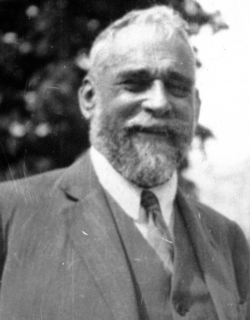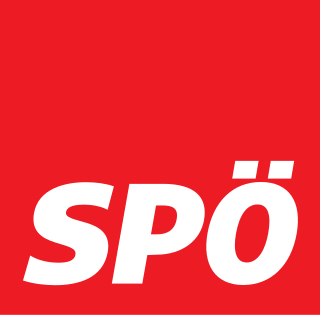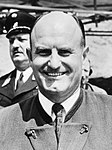
The politics of Austria take place in the framework of the federal parliamentary republic of Austria, with a President as head of state, and a Chancellor as the head of government. Governments, both local and federal, exercise executive power. Federal legislative power is vested both in the Federal Government and in the two chambers of Parliament; the National Council and the Federal Council. The Judiciary of Austria is independent of the executive and the legislature.

The Progressive Citizens' Party is a national-conservative political party in Liechtenstein. The FBP is one of the two major political parties in Liechtenstein, along with the Christian-democratic Patriotic Union. Founded in 1918 along with the now-defunct Christian-Social People's Party, it is the oldest extant party in Liechtenstein.

General elections were held in Denmark on 20 November 2001. For the first time since the 1924 elections, the Social Democrats did not win the most seats. Anders Fogh Rasmussen of the centre-right Venstre became Prime Minister in coalition with the Conservative People's Party, as the head of the first Rasmussen government, with the support from Danish People's Party.
A grand coalition is an arrangement in a multi-party parliamentary system in which the two largest political parties of opposing political ideologies unite in a coalition government. The term is most commonly used in countries where there are two dominant parties with different ideological orientations, and a number of smaller parties that have passed the election threshold to secure representation in the parliament. The two large parties will each try to secure enough seats in any election to have a majority government alone, and if this fails each will attempt to form a coalition with smaller parties that have a similar ideological orientation. Because the two large parties will tend to differ on major ideological issues, and portray themselves as rivals, or even sometimes enemies, they will usually find it more difficult to agree on a common direction for a combined government with each other than with smaller parties.

Josef Klaus was an Austrian politician of the conservative People's Party (ÖVP). He served as State Governor (Landeshauptmann) of Salzburg from 1949 to 1961, as Minister of Finance from 1961 to 1963 and as Chancellor of Austria from 1964 to 1970.

Early parliamentary elections were held in Austria on 24 November 2002, after internal divisions in the Freedom Party of Austria (FPÖ) culminating in the Knittelfeld Putsch led to the resignation of several leading FPÖ members. The result was a victory for the ÖVP, which won 79 of the 183 seats, the first time it had been the largest party in the National Council since 1966. It continued its coalition government with the FPÖ, which had lost almost two-thirds of its seats. Voter turnout was 84.3%.

Parliamentary elections were held in Austria on 3 October 1999.

Parliamentary elections were held in Austria on 24 April 1983. The result was a victory for the Socialist Party, which won 90 of the 183 seats. However, the Socialists lost the outright majority they had held since 1971, prompting Bruno Kreisky to stand down as SPÖ leader and Chancellor in favour of Fred Sinowatz. The SPÖ stayed in office by entering into a coalition government with the Freedom Party of Austria, which at this point was a liberal party. Voter turnout was 92.6%.

Parliamentary elections were held in Austria on 1 March 1970. The result was a victory for the Socialist Party, which won 81 of the 165 seats to become the largest party for the first time in the Second Republic, only two seats short of a majority. Bruno Kreisky of the Social Democrats became Chancellor at the head of a minority government that was tolerated by the Freedom Party of Austria in return for electoral reform that favoured smaller parties. Voter turnout was 91.8%. It was the first Socialist-led government since 1920, and the first purely left-wing government in Austrian history.

Parliamentary elections were held in Austria on 10 May 1959. Although the Social Democratic Party received the most votes, the Austrian People's Party retained a bare one-seat plurality. The Communist Party of Austria lost its remaining three seats and has not returned to the National Council since. Voter turnout was 94.2%. The grand coalition that had governed the country since 1945 remained in office, with People's Party leader Julius Raab as Chancellor and Socialist leader Bruno Pittermann as Vice-Chancellor.

Parliamentary elections were held in Austria on 13 May 1956. The result was a victory for the Austrian People's Party, which won 82 of the 165 seats in the National Council. Voter turnout was 96.0%. Although the ÖVP had come up one seat short of an absolute majority, ÖVP leader and Chancellor Julius Raab retained the grand coalition with the Socialists, with the SPÖ leader Adolf Schärf as Vice-Chancellor.

Federal elections were held in Germany on 12 January 1912. Although the Social Democratic Party (SPD) had received the most votes in every election since 1890, they had never won the most seats, and in the 1907 elections they had won fewer than half the seats of the Centre Party despite receiving over a million more votes. However, this election saw the party win more than double the number of votes of the second-placed Centre Party and become the largest party, winning 110 of the 397 seats.

General elections were held in Sweden on 19 September 1976. Although the Swedish Social Democratic Party remained the largest party, winning 152 of the 349 seats in the Riksdag, a coalition government was formed with the Centre Party, the People's Party and the conservative Moderate Party, which formed Sweden's first non-socialist government since 1936. Centre Party leader Thorbjörn Fälldin, who had widely been expected to take over the government in the previous election of 1973, was appointed Prime Minister, the first not from the Swedish Social Democratic Party since Axel Pehrsson-Bramstorp's brief interregnum 40 years earlier.

General elections were held in Sweden on 16 September 1979. Although the Swedish Social Democratic Party remained the largest party, winning 154 of the 349 seats in the Riksdag, the liberal interim government of Ola Ullsten was succeeded by another centre-right coalition government composed of the People's Party, the Moderate Party and the Centre Party, led by Centre Party leader Thorbjörn Fälldin. The three parties together won 175 seats, compared to the 174 won by the Social Democrats and Communists. It was the only time that non-socialist parties retained power in an election between 1928 and 2010. The Moderates dramatically increased their representation in the Riksdag, becoming the largest party of the non-socialist bloc, a position they have maintained ever since.

General elections were held in Romania in December 1937. The Chamber of Deputies was elected on 20 December, whilst the Senate was elected in three stages on 22, 28 and 30 December. The National Liberal Party remained the largest party, winning 152 of the 387 seats in the Chamber of Deputies and 97 of the 112 seats in the Senate elected by universal male vote, although it lost its majority in the Chamber. The party's unexpectedly poor showing meant they could not form a coalition with either their arch-rivals the National Peasants' Party or with the Iron Guard's Everything for the Country Party, King Carol II invited the poet Octavian Goga to form a government, despite the fact that his National Christian Party finished fourth and had an avowedly anti-Semitic platform.

Parliamentary elections were held in Hungary on 8 May 1994, with a second round of voting in 174 of the 176 single member constituencies on 29 May. They resulted in the return to power of the Hungarian Socialist Party, the former Communist party, under the leadership of Gyula Horn, who became Prime Minister. The Socialists achieved a remarkable revival, winning an overall majority of 209 seats out of 386, up from 33 in 1990. At the time, it was the most seats that a Hungarian party had ever won in a free election.

General elections were held in Liechtenstein on 1 February 1970. The Patriotic Union won 8 of the 15 seats in the Landtag, the first time it had held a majority since its formation in 1936. However, it continued the coalition government with the Progressive Citizens' Party, which had been in power since 1938. Voter turnout was 94.8%, although only male citizens were allowed to vote.
Federal elections were held in Czechoslovakia on 8 and 9 June 1990, alongside elections for the Czech and Slovak Assemblies. They were the first elections held in the country since the end of Communist rule seven months earlier, and the first free elections since 1946.

The Social Democratic Party of Austria is a social-democratic political party in Austria and alongside with the People's Party one of the country's two traditional major parties.


















